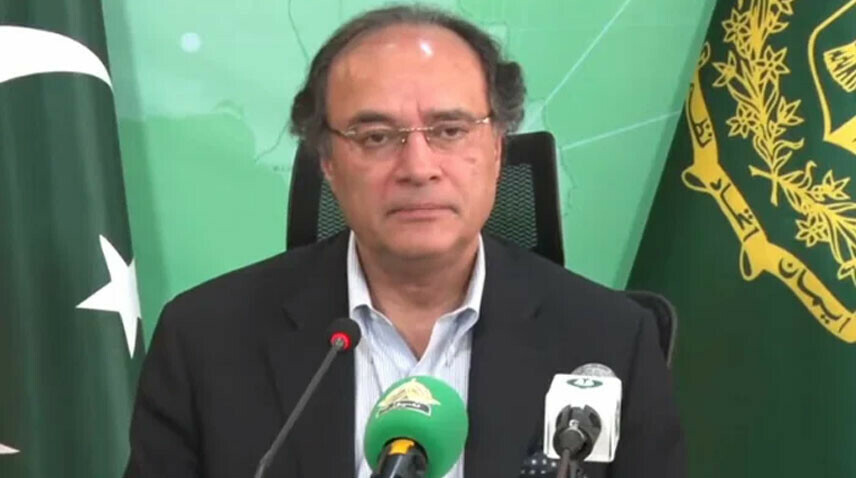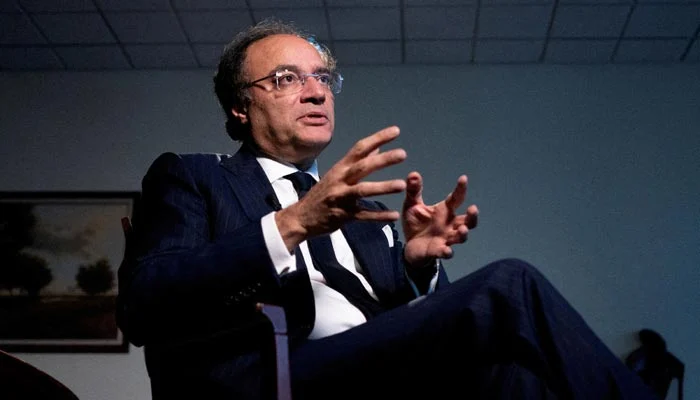
Pakistan’s upcoming IMF bailout will ‘not be our last’ if tax revenues don’t rise — finmin
- Finance Minister Aurangzeb last month passed tax-heavy budget, earning the ire of opposition and government’s allies
- Pakistan is in talks with International Monetary Fund for fresh bailout program that it hopes will be between $6-8 billion
ISLAMABAD ( WEB NEWS )
Pakistan will keep seeking financial assistance packages from the International Monetary Fund (IMF) if it does not significantly boost its tax revenues, Finance Minister Muhammad Aurangzeb said on Sunday.
Aurangzeb’s comments come days after Pakistan’s president signed the federal budget for the current fiscal year, which has been criticized by the opposition, trade bodies and even the government’s allies, for its ambitious tax targets.
The tax-heavy budget aims to raise Rs13 trillion ($46.6bn) by July 2025, a roughly 40 percent increase from the current financial year. Financial experts say the budget is aimed at satisfying the IMF, which has repeatedly asked Islamabad to bring tax reforms to ensure growth in its fragile economy.
Speaking to British newspaper Financial Times, Aurangzeb said he was “relatively confident” of reaching a staff-level agreement with the IMF this month for a loan his government has estimated to be between $6-$8bn.
“But it will not be our last fund program if we don’t bring our tax revenues up,” the minister said.
Pakistan hopes the IMF bailout package will stabilize its economy, one of the worst-performing ones in Asia, that has been troubled by double-digit inflation, slow growth and low foreign reserves.
Pakistan’s economic indicators have recorded an improvement over the past few months, with inflation dropping down to 12.6 percent in June from the record-breaking 38 percent in May 2023. Pakistan’s stock market has registered high growth in recent weeks while the central bank’s foreign reserves have risen to over $9 billion.
“The direction of travel is positive, and investors are showing confidence in the stock market,” Aurangzeb said.
However, he acknowledged Pakistan’s tax collection authority, the Federal Bureau of Revenue (FBR), was viewed negatively by the masses.
“People don’t want to deal with the tax authority because of corruption, because of harassment, because of people asking for speed money, facilitation money,” Aurangzeb noted. “That’s not sustainable.”
The finance minister lamented how Pakistan’s economy was reliant on imports, stating that Islamabad had to borrow to pay off existing or accumulating debt.
“We need to create the capacity to repay loans,” Aurangzeb said. “As long as this economy stays import-based, what happens is the moment it heats up . . . we run out of dollars [and] we have to go back to the lender of last resort on our knees.”
Since April, Prime Minister Shehbaz Sharif has visited Saudi Arabia, UAE and China to attract foreign investment in Pakistan’s key sectors. His government has repeatedly assured Pakistan’s allies it seeks not loans but “mutually beneficial” partnerships.
“It’s about time we get real,” Aurangzeb said, pointing to Gulf investors’ demands for equity and board seats. “The ball is in our court to provide bankable, investable projects.”

